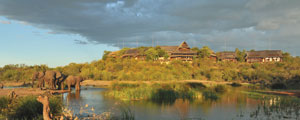
CHIPINGE — Biopiracy and climatic change impacts are exerting a heavy toll on Zimbabwe’s natural resources and there is need to strengthen national laws and mitigate the effects through promotion of small grains in dry areas of the country, the Environmental Management Agency (EMA) has said.
Tonderayi Matonho OWN CORRESPONDENT
Steady Kangata, EMA spokesperson, described increased biopiracy and global warming as the major drivers for biodiversity loss in the country.
“Global warming, leading to climate change, and biopiracy, the illegal harvesting and trading in plant and animal species, is exerting a heavy toll on the country’s natural resources and there is need to strengthen national laws and also promotion of small grains in dry areas of the country which are the most vulnerable,” Kangata said, during a national biodiversity media tour of Chipinge last week.
Efforts to push for a Bill on Access to Benefit–Sharing in Parliament, he said, would help curtail biopiracy and unsustainable forest practices and dry areas such as Nyanyadzi and Matabeleland North that need promotion of small grains to adapt to climate change.
In a separate interview, Andrew Mushita, director of Community Technology Development Trust which run projects in Chipinge, said national laws on the protection of biodiversity must be clear and specific.
“Conventions and laws on international biodiversity can only provide a general framework and in the field each case will require specific and clear solutions,” he said. Wildlife and Environment Zimbabwe director Willie Nduku said there was unauthorised movement of forest resources and this had a dramatic and far-reaching impact at both local and national levels.
“In the absence of clear national and international rules and regulations on benefit-sharing, some companies and research centres have adopted their own codes of conduct in resource exploitation,” he said.
- Chamisa under fire over US$120K donation
- Mavhunga puts DeMbare into Chibuku quarterfinals
- Pension funds bet on Cabora Bassa oilfields
- Councils defy govt fire tender directive
Keep Reading
Joseph Tasosa of the Zimbabwe National Environment Trust, an non-governmental organisation working with Nyanga communities on water harvesting, pointed out the need to distinguish biopiracy from bioprospection.
“These good intentions of lobbying for such laws in Parliament will also be a reality if, apart from involving the communities, such efforts would also seriously examine biopiracy from bioprospection,” he said.











